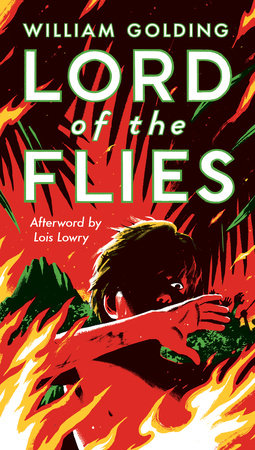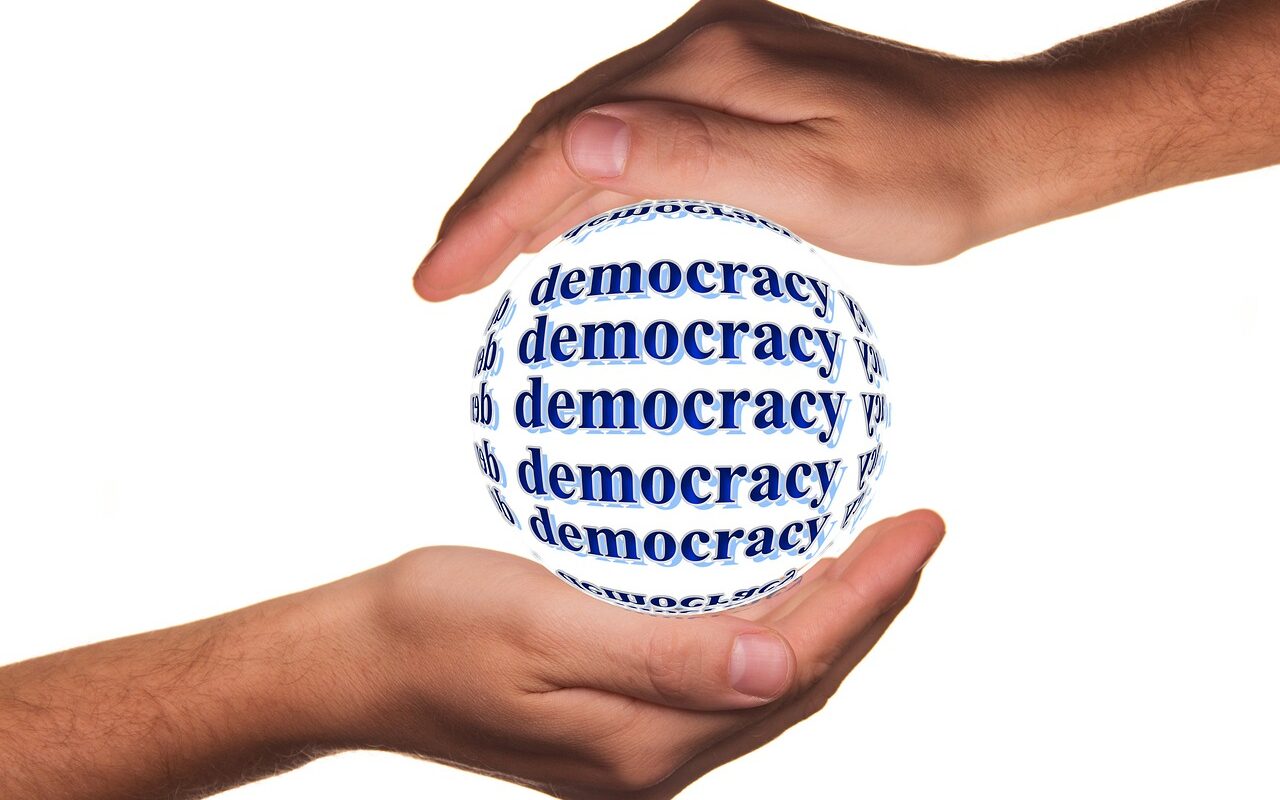In the first part of my question ‘Democracy through Education?’ I mentioned that one political party in Austria believes that Democracy could become a subject in the secondary school curriculum. In this second part I would like to offer a practical example from an English novel.

In one of our English books for the Oberstufe, which I produced with two colleagues, ‘Meanings in Use 4: Project Resource Book’ (ōbv, 2003), we deal with voting and elections. We offer an extract from William Golding’s novel Lord of the Flies (Chapter 1).
What is Golding’s book, first published in 1954, all about? During an atomic war, an aircraft carrying a number of English schoolboys, aged from 6 to 12, crash-lands on a coral island in the Pacific. But our story in ‘Lord of the Flies’ is not a romantic South Pacific idyll.
© penguinrandomhouse
The crew of the crashed aeroplane have been killed, and the stranded boys are left to their own devices. There is fruit to eat, there is a clear pool for swimming, and in the forest there are piglets to be hunted for their meat.
The boys have found a conch shell in a lagoon, which they use to summon a meeting of all the boys they believe to be scattered across the island. Whoever holds the conch has the right to speak and so to be listened to. The conch is a symbol of common assembly, of law and order, of authority and discipline – and so democracy.
So, what will happen now? How secure is the new democracy the boys seem to have set up?
Ralph is democratically voted as leader. He is an honest and tenacious boy, with a sense of responsibility. Though not highly intelligent , he is aware that the first tasks confronting them are to build shelters and to keep a fire burning day and night. A routine of duties is arranged: there will be fire-stokers, shelter-builders, and hunting parties to catch the pigs.
But this routine becomes tedious. The smaller boys lose interest in their tasks; the bigger boys want to spend their time hunting. A rumour spreads that a fearsome ‘beast’ is lurking in the forest, and this idea gains ground when one night they come across the dead body of a parachutist. In the course of trying to uncover this mystery, one boy – Simon – loses his life.
A new chief, Jack, is chosen because he is ruthless, seems more competent and promises to fulfil the boys’ desire to resort to primitivism. His style of leadership is based on domination and fear. His power on the island is based at ‘Castle Rock’. But Jack is not good at blowing the conch. He does not believe in democracy. He imposes his will on others, with no regard for their needs or feelings. He wields power without responsibility. What he can’t dominate, he tries to destroy.
Ultimately, the boys end up deciding between democracy and anarchy, between civilization and savagery. When the most intelligent boy, Piggy, is killed, the conch is smashed into a thousand white fragments. This signifies the end of order and civilization on the island.
The former leader, Ralph, gradually finds himself an outcast, and then a scapegoat. Ralph just manages to escape the blood-lust of the boys-turned-savages,
By the end of the novel, fire – set by Jack’s gang to smoke Ralph out – has destroyed the island. Ironically, it has also alerted a passing Royal Navy ship to stop at the island to investigate. The boys are finally rescued, and saved from their own self-destructive instincts.
The whole novel ‘Lord of the Flies’ is well worth reading: it is both timely and timeless. It’s about important themes: democracy, as well as good vs. evil in people’s hearts. The author, William Golding himself, said that one of the main aims of his book was to tell the story of the breakdown of parliamentary democracy.
I can well remember working with 7th class pupils in the Gymnasium in Landeck on ‘Lord of the Flies’. The idea that, without the discipline of adults, young people will deteriorate into savages led to lively discussion.
Golding himself had been a schoolmaster. It was in fact his belief that, left to their own devices without adult supervision, children would degenerate into wild animals. In an interview in 1963, he said: “I’m not saying anyone is evil. I set out to discover whether there is that in man which makes him do what he does, that’s all.”
But Golding was deeply concerned about man’s inhumanity to man, especially after the Second World War. He was quite explicit about his book: “The theme is an attempt to trace the defects of society back to the defects of human nature. The moral is that the shape of society must depend on the ethical nature of the individual and not on any political system, however apparently logical or respectable.”
These are big, important themes. Does democracy, then, depend on the moral education of individuals?
Could ‘Lord of the Flies’ be an allegory of what could happen in Austria after the elections in September 2024? Kickl’s ‘Festung Oesterreich’ looks very like Jack’s ‘Castle Rock’ in Golding’s novel.
Food for thought? Democracy through education? Education for democracy!
PS: The text of Goldings’s ‘Lord of the Flies’ is readily available in the red Reclam Fremdsprachentexte-series, number 9236, with a very useful Nachwort.

 von
von 

